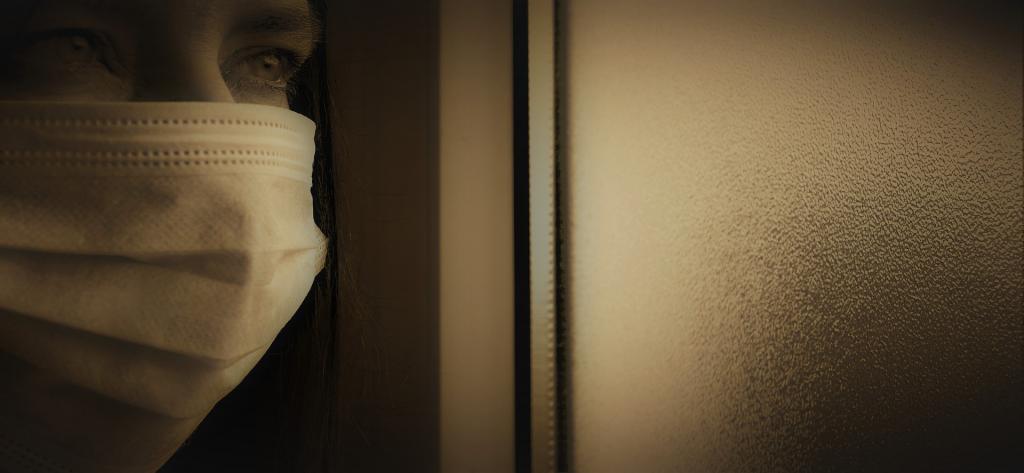I’ve started a new exercise regimen, a high-intensity interval training thing which is supposed to be effective even with short sessions. Between working two jobs and homeschooling I don’t have time for lengthy workouts, especially if I’m going to get dinner ready on time and try to prep for this year’s gardens.
Maybe I need to come up with a better time management system. But something inside me resists making any more changes to my lifestyle, on top of all the other changes the past twelve months have brought. Looking back at this time a year ago, it seems a decade past. The pandemic had only just begun, and we weren’t yet sure what it would bring—though epidemiologists and public health experts were already warning us we’d be in for a long haul.
I expected that. I expected quarantine and lockdown periods to last much longer than the initial “stay inside and post fun selfies for three weeks.” I knew, with a corrupt and inept administration, not to expect much in the way of pandemic management from the White House, or from many state or local authorities.
I didn’t expect, however, that my own fellow citizens, member of my own community, especially my church community, would become the greatest obstacle to getting through the pandemic safely. The slew of conspiracy theories, the anti-maskers, the pandemic-deniers, the raging mobs protesting the lockdowns, the demands to open churches, and even the comparison of sensible mask mandates to the Holocaust—this all took me by surprise. I suppose I was more naïve than I realized.
When I entered the pandemic, I expected that it would change me. I had in mind the resilience of my grandmother who lived through World War I, the Great Depression, and World War II—who worked for a living long before this was routine for women, who planted her victory gardens and got involved in local politics. I wanted to become more resilient, as she was, and maybe I did, but I also became more cynical.
I’ve had ample opportunity to reflect on humanity’s weaker side, since the pandemic began, and what I see is a kind of terror in the face of any proposed change. I see people clinging to the familiar things, even the most basic and unimportant familiar things, because the prospect of alteration must seem, to them, like an impenetrable abyss. They can not imagine a world different from what they are accustomed to, even down to the logo on their maple syrup bottle and how a priest distributes ashes on their heads. In their fear of change they have become selfish, uprooted from reality, demanding that everything remain the same just to accommodate their feelings. It has not been an attractive vista.
Yet this is a condition of humanity in general, myself included. I don’t want to give up my beloved routines or coping mechanisms. It’s interesting that as much as Christianity stresses transformation, and conversion, most of us seem to imagine this happening in a very abstract manner. Or perhaps, ideally, to someone else.
My own recent conversions have consisted in turning away from ideologies I’d clung to for years, ideologies I now clearly understand to be harmful, even though I spent so long trying to reframe them for myself so that they looked benign. I say “conversions” because it’s not just one turning away. It’s a whole series. After a while it can almost make one dizzy.
How hard I worked to pretend that authoritarianism was freedom, that self-hating was morality, that discrimination was love. And ironically, at the same time, I resisted any idea that limiting certain of my own freedoms, for the sake of a common good, might be prudent and just. Instead of a theology of liberation, mine was a theology of privilege.
Plato talked about our resistance to change, when he depicted the denizens of the cave who refuse to be dragged away from the spectacle of shadows, refuse to be brought into reality. I see this characteristic especially in adherents to “traditionalist” religion, not just in Christianity, but in other religions as well. And this characteristic is deadly. A rigid refusal to meet the challenges of new discoveries, to be transformed by the truth and by the demands of justice, as the arc of history bends—this leads to inquisitions, jihads, and “holy wars.” When secular humanists decry religion, this is the kind of religion they are thinking of.
I think the pandemic ought to have changed us for the better, as a society, and certainly in many respects I’ve seen the best sides of humanity. I was touched by the kindness of my real and virtual communities when my father died, and their generosity when my son had to have emergency surgery. I’ve seen the tireless work of those helping the poor and immigrants during this time. And I’ve tried to do my part.
But I’ve also seen the foolish arrogance of those who have refused to change, and refused to be changed, when a dire situation demanded it of them. I don’t know that I can ever think well of them. At the same time, though, I see so many of my own past errors mirrored in their actions. I understand better, because of this, the harm I did in the past, and want to make amends, but how difficult it is to admit this.
I eagerly accept the proposition that my body needs to be changed—that’s why I’m working out. We have whole industries devoted to telling us to be more thin, more strong, more energetic, more positive, more successful, more youthful, better at sex, better at money-making, better at influencing people. Why are we so willing to accept that we need to change in these superficial ways? Is it because we are trying to flee from confronting those areas of our life where real change, change of heart and mind, is needed?
Unfortunately, I fear that as a collective society the pandemic has not sufficiently awakened us to how cruel and unsustainable our system is, even if it has shone a spotlight on how morally frail we are. I don’t know what it’s going to take to make us all pay attention, and I’m not sure I am ready to know.
Image credit: https://pixabay.com/photos/respiratory-protection-mask-5038663/













